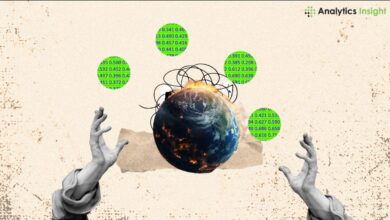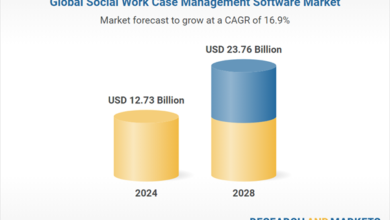The Impact of Quantum Computing on Data Science


The collaboration of data science and quantum computing appears as a new milestone in the future of data science, despite the quick progress that has been made in the technical arena. This collaboration has the potential to change the ways of handling, analyzing, and drawing insights from enormous amounts of information. But we cannot forget that it also coincides with the predictions that Data Science has made.
According to the United States Bureau of Labor Statistics, the expansion of the field of data science is anticipated to result in around 11.5 million employment possibilities by the year 2026 or later.
The impact of quantum computing on data science
Have you ever wondered what’s the future like for data science?
Well, get ready because we’re about to dive into the brilliant world of quantum computing and its revolutionary impact on the future of data science.
Exploring the concepts of quantum computing
Utilizing some of the special properties of quantum physics, a quantum computer is a device that can solve problems beyond complex for conventional computers, let alone supercomputers. The field of quantum computing is concerned with developing technology that makes use of the way matter and energy behave at the subatomic scale.
The concepts of physics that govern individual atoms, electrons, and elementary particles are referred to as “quantum” principles. The laws of physics are not the same at this microscopic level as they are in our everyday lives.
In an attempt to perform tasks and computations that current digital computers are unable to perform (at least not quickly), quantum computing attempts to control and manipulate these different physics.
When qubits are connected in a certain way, the state of one qubit can have an immediate influence on another qubit even when they are separated by some distance, which is accomplished with entanglement; thus, qubits can be twinned.
The method of superposition can be used to maintain qubits in a state of both 0 and 1 at once. The result is a significant increase in computational power.
The intersection of quantum computing and data science
If quantum computing could be one way to get answers to the tough, vast calculations that classical computers would need millennia for, then this can be done utilizing quantum computing.
The consequences of this discovery in the field of data science are profound. Below are a few ways through which quantum computing is anticipated to greatly impact the arena of data science and revolutionize the field.
1. Processing the data at a faster rate
Quantum algorithms can change the world of data processing activities such as cryptography, machine learning, and optimization concerning data processing. Quantum computers can easily filter enormous datasets and discover patterns at an exponential rate.
- When compared to conventional computers, quantum computers can examine big datasets at a quicker rate.
- One of the most important aspects of a growing data science career is the ability to train machine learning models at a fraction of the time it would take with the computing resources that are now available.
- Considering that quantum encryption methods promise unbreakable protection for sensitive data, certifications in quantum approaches are a must for data science professionals.
2. Enhanced data analysis
Considering that quantum computers can process enormous volumes of data and concurrently calculate sophisticated algorithms, they have the potential to reveal insights that were previously obscured by noise.
- Quantum computers can simulate complicated systems with more precision which will be an essential component of the future of data science.
- It is possible to train artificial intelligence algorithms on quantum datasets to make more accurate decisions, which will enhance the capabilities of data science professionals.
- Quantum-enhanced data clustering can organize information efficiently.
3. Conquering the limitations of the data
Quantum computing offers a solution to the problem of scalability when dealing with massive amounts of data by providing excellent processing power. The ability to analyze, store, and manipulate vast amounts of data opens up new doors for innovation in the field of data science.
- Quantum databases can easily access enormous amounts of data without compromising speed,
- Quantum machine learning algorithms adapt to new information seamlessly which is pivotal for those holding or pursuing Data Science certifications.
- You can start your data science career by receiving certifications from reputed institutions like Johns Hopkins University or Columbia University.
- Quantum data compression techniques reduce the storage requirements for large datasets, an innovative approach for a career in data science.
The future is quantum computing
Considering that we are on the verge of a quantum revolution, the implications for the field of data science are significantly significant. There is a possibility that quantum computing may usher in a new era of discovery and invention, therefore bringing about a transformation in the way that we process and interpret data. The combination of quantum computing with data analytics paves the way for several possibilities that were previously only imaginable in the domain of fictional stories.
Prepare yourself to fully immerse yourself in a world where the seemingly impossible is now within your reach.
Final thoughts
Quantum computing is expected to change the area of data science by giving processing capacity that has never been seen before and opening up new opportunities for creativity. We might anticipate quicker data processing, improved data analysis tools, and solutions to data limits that were formerly thought to be insurmountable if we can harness the principles of quantum physics. Quantum computing is the way of the future for data science. You will have the opportunity to observe the revolutionary influence that quantum computing will have on the field of data science.



